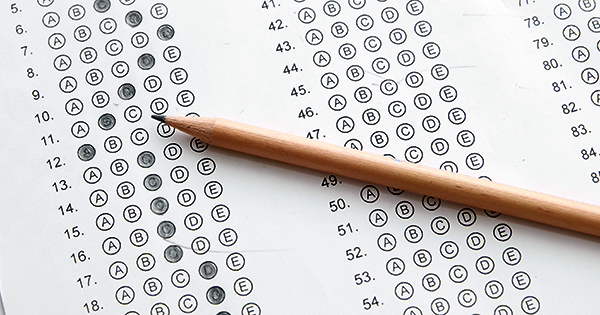Standardized Tests: The Threat And Uselessness Of Asking About Identity
November 12, 2018
“Stereotype threat” is exactly what it sounds like: the threat of stereotypes. Throughout society, there is a pressure put on people of all different marginalized or generalized groups (in race, gender, class, etc.) to represent “their people.” As a result, they feel the need to disprove negative stereotypes for the good of their group as a whole, and that pressure has been shown to set them back in how they perform. As students, we see this most prominently in standardized testing.
Testing is a huge part of the life of every American teenager. To start with, every sophomore and upperclassman is familiar by now with the registration for the PSAT. You sit down and fill out pages full of information about your race, gender, parents’ educational background, and other things that would seemingly have nothing to do with your testing abilities. Of course, the question comes to mind: why do they ask?
The answer? There isn’t one. Not from the College Board, at least. As is included in The Atlantic’s article, “The Rise of the American ‘Others’”: “Prior to [the 1960’s] the measurement of race and ethnicity in the census was often used, not for helping people, but to show how people can be differentiated…onwards, the measurement was really used to address problems and concerns.” A racial census has been used frequently to gather data often supporting racist concepts of a genetic difference in the intelligence of people from different backgrounds, but on the flip side, it is used to find the causes for certain setbacks that people continue to have. Jenai Bell, the testing coordinator at SSFS, says, “We get to see the discrepancies between students who identify with a certain identity, and [we get] to keep the testing companies accountable with the claims that they’re making.” These are valid points and believable explanations, however they do not come from the College Board itself.
What we do have, however, is evidence showing why asking is harmful. A study by Esther Landhuis for Shots states that, “Stereotype threat can drive up a person’s heart rate, raise stress hormones, and sap working memory, leaving less brainpower for the task at hand.” Claude Steele wrote a now-famous book called Whistling Vivaldi, stating “The problem is that the pressure to disprove a stereotype changes what you are about in a situation. It gives you an additional task.” SSFS Learning Specialist Shannon Needham said, “If you are identifying yourself in a way that is stereotyped to not do well for some reason…then it is more likely to impact you if that’s brought to your attention prior to taking a test.” Jenai told me about her own personal experience with it: “As a woman, if I was in a class that was majority men, then I kind of felt like ‘I don’t want to speak and be, like, the representation for all women.’ [It’s] the same with if I’m the only black person, or the only black woman in a situation. In those situations, you can feel like you’re more aware of those identities.”
It is impossible, damaging even, to try to erase identity and pretend that there is no difference between us. But it is also undeniable that there are harmful assumptions and setbacks that certain groups face. Several arguments suggest that making a point of a student’s race, gender, etc. in a high-pressure situation (like a test) is likely going to remind them of how they have it harder, and how they are tasked with proving prejudiced critics wrong and showing their worth. Therefore, while it is arguable that identity questions can draw conclusions about how people perform and where work needs to be done, asking them can and will negatively influence the results that you get.








Eleen Long • Jan 17, 2019 at 2:15 pm
This article commendably speaks my mind. When I took PSAT, I was confused about why the test wants to know about my race. I totally agree with the point about stereotype that you mentioned in the article. Being put in a stereotype could be helpless for under a lot of conditions, and the negative effect of that is real. I am an Asian, and it does not mean that I am terribly good at study. I feel stressful when I am assumed by people that I have some kind of ability or behaviour based on their prejudice. Thus, I really like the point that you mentioned in your article.